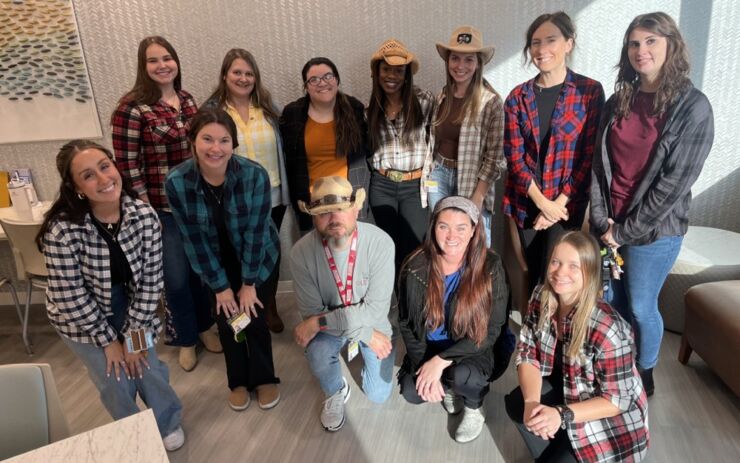
Leaders in Gemba
04/16/21 04:32:pmRogers Behavioral Health leadership has been dedicating more time to being “in gemba”— or where the work is happening— as part of a system-wide initiative to foster a healthy workplace culture.
Previous employee surveys identified the idea of leaders interacting with the various teams at Rogers as very important. As a result, a metric was created to track how often leaders are in gemba.
In a recent all-Rogers meeting, Sue McKenzie Dicks, vice president, Healthy Culture, said the purpose of this new metric was to assess the health of the Rogers system and help staff in their professional development. This includes creating standard work or adapting existing work to fix what isn’t working, checking on what matters to Rogers team members, and evaluating overall team culture and how well staff members are embodying the employee behavior agreements. 
Sam Klinger, director, Continuous Improvement, says that this initiative is “pulling together a lot of important concepts.”
“We’re checking in on our processes, barriers staff might be experiencing, and engaging individuals doing ‘the work’ in making processes better,” she says. “Leaders are also encouraged to pull in EQi Emotional Intelligence and compassion resiliency concepts into their time in the Gemba. For example, if a team member is in distress, how can we use the steps to compassionate action to support them?”
Sam continues, saying that another element is for leaders to converse with their teams to open up conversations on what matters to them. For some leaders, being in gemba may be observing a meeting for a period of time. For others, it could be rounding with the care team. Sam says there are many different ways it can be done, and the reception so far has been positive.
“The biggest thing I’ve been hearing is that leaders feel like they’re learning a lot from their team members while team members are finding benefit in the connections,” she says.
Deanna Kolas, a therapist in Minneapolis, says that she enjoys when opportunities for gemba come up. “I’m always looking for and open to ideas on how to improve my process, and getting an outside perspective can be really helpful,” she says.
The benefit of getting an outside perspective is also echoed by Lauren Wodicka, a behavioral specialist in St. Paul, who says, “I really like having gemba time. It helps with feeling more connected with operations and provides them with insight on what our day-to-day looks like.”





